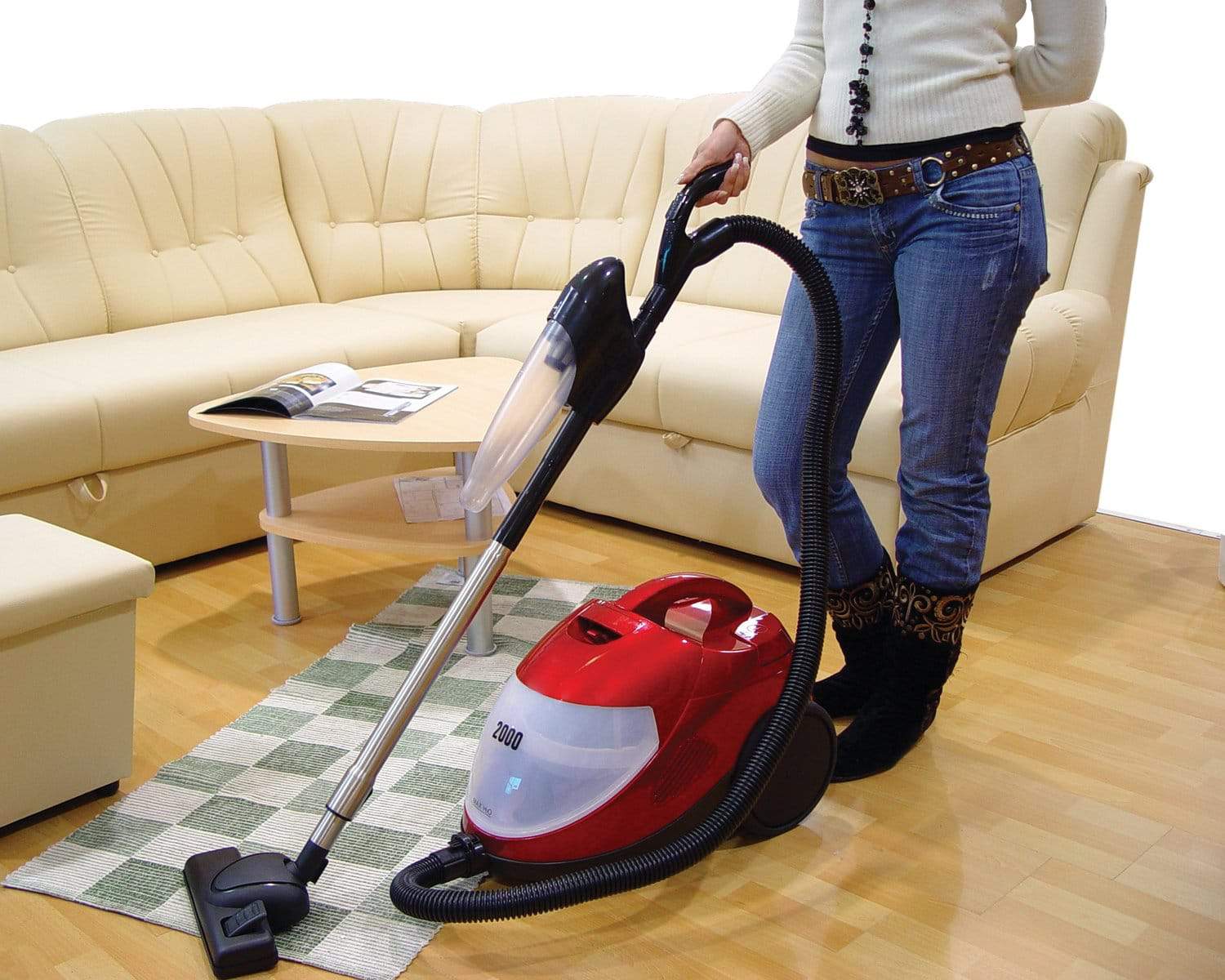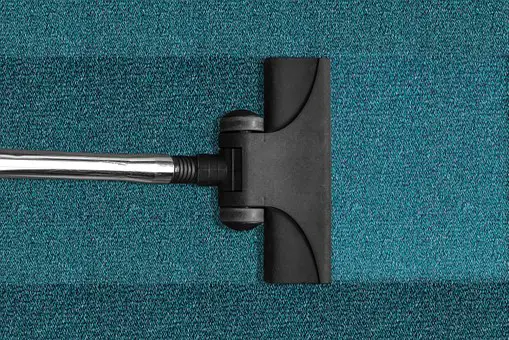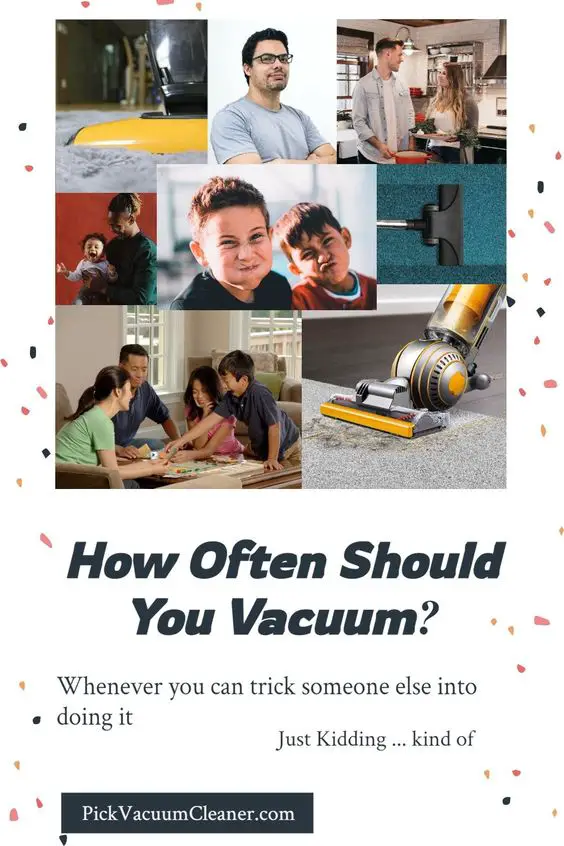How often should you vacuum? Many of us have asked this question at one time or another. And the answer depends on your situation and who you ask.
And of course, we all have that friend who swears she vacuums every day. You know the type. The one with the immaculate house who also puts a home-cooked dinner on the table every night. Whether your friend is being honest or not, don’t feel pressured into vacuuming every single day. That’s just ridiculous.
Some say you should vacuum carpets once a week “for each beating heart” in your home. For large families with lots of pets, that sounds next to impossible. The Carpet and Rug Institute says we should be vacuuming our home twice a week. This sounds reasonable In fact, air quality and carpet experts agree that, for the average household, once a week is plenty. To be sure, they assume you have a high-quality vacuum and that you’ll do a thorough job.
How Often Should You Vacuum?
When is Once a Week Isn’t Enough

Of course, you may find yourself needing to vacuum more often. While once a week works for most people, others need to vacuum two or three times per week. If you have pets or allergies, this can affect how often should you vacuum. Likewise, if you have a large family tracking things in and out, that can make your house get dirty faster. Plus, if you don’t have a good-quality vacuum, you’ll need to put in more time.
- Clean water capacity 147 ounces
You may also want to think about your doorways and hallways. These areas often take more of a “beating” than other parts of the home, especially if you get lots of visitors. And of course, people with multiple pets or with breeds that are known for shedding know what they’re in for.
Do you have family members or others living in your home with severe asthma or allergies? That also figures into the question, how often should you vacuum. In these cases, you may find you need to vacuum daily, in addition to regular dusting and mopping. Unfortunately, people with asthma can suffer severely if the air quality gets bad.
On top of vacuuming once a week or more often if required, you should vacuum if there’s a spill. Even if you can’t see a stain or visible debris, it’s a good idea to vacuum. After all, things can go deep into the carpet where you can’t find them.
This video recommends twice a week.
Do You Have The Right Vacuum?
One common thing that affects how often you should vacuum is whether you’ve got the right one. A low-quality product can be more work than it’s worth. Or perhaps parts of the vacuum are worn out or it needs a new filter.
Whatever the case may be, if you find yourself vacuuming more than most people, you may need to look at this.

For example, how often should you vacuum may have a lot to do with your flooring. If your unit doesn’t work well on tile or carpets and your home has lots of it, you may need a different one. Or perhaps you need one that handles different kinds of floors. That’s because some vacuums just don’t work as well on some types of flooring. For example, some don’t handle deep cleaning carpets very well. Meanwhile, others don’t do so great on hardwood floors. If your vacuum doesn’t clean effectively, then it’s time to upgrade to something that will work.
Here’s CNET’s guide to buying the right vacuum.
Signs That You May Need a New Vacuum
You should also pay attention to how much noise your vacuum makes. Very few vacuums are quiet run quietly, of course. But if yours suddenly seems to get louder each time you run it, it’s a dead giveaway that something isn’t right. Either have it looked at or consider replacing it if it is old or has other problems already. You’ll find that repairs or replacements can do wonders for keeping your house cleaner for longer.
- THE COMPLETE CLEAN COMBO: The Hoover PowerScrub Deluxe Carpet Cleaning Machine combines five...
- VERSATILE TOOLS: Deep cleaning goes beyond just the floor. PowerScrub Deluxe Pet Carpet...
Also, be on the lookout for a decrease in the amount of “suction power” your vacuum has. If you notice it’s not picking up much, change the bag if your vacuum has one. And if that doesn’t work, try cleaning or changing the filter if applicable. Finally, if nothing works to boost your vacuum’s suction, it’s probably time to get a new one.
Other Frequently Asked Questions
What happens if you don’t vacuum?
There are many negative things that happen if you stop vacuuming for long periods. First off, your floors can get discolorated since dirt particles begin accumulating much faster. Next, the carpet’s fibers start wearing down because they can’t breathe as well as before. Not only that, but the dirt also has a sort of sandpaper effect on the carpet when you’re walking on it or dragging stuff around on it, which encourages deterioration even more.
Dust Mites and Other Issues
That’s right, discoloration and the deterioration of carpets are the least of your worries. Not vacuuming your floors feeds dust mites. These little critters feed on dead human skin and other dusty items. They can cause serious allergic reactions if left unvacuumed, and the sad part is that they can multiply at an alarming rate if you don’t vacuum. Furthermore, if you have pets, the accumulation of hair can smell quite unpleasant and also contribute to respiratory problems.
Is it OK to vacuum fast or slow?
Vacuuming slowly will allow your machine to suck up more dirt and dust, and ultimately get your rugs and carpets much cleaner. Slow vacuuming allows the brush to agitate the carpet properly and suck up the unclean bits that emerge. Don’t vacuum too fast because you will miss a lot of dust and pet hairs and will have to go back to them anyway.
Is it better to dust or vacuum first?
Always dust first and only then vacuum. Wipe your surfaces first using a damp cloth or a microfiber duster, which will trap the dust. There’s no single trick or technique that will remove all the dust in your home, so that’s why it’s crucial to use as many resources as possible.
Final Thoughts
As you can see, how often you’ll have to vacuum will depend on a lot of factors. If, however, you’re vacuuming regularly and not getting the results you want, then it may be time to look for a new vacuum or at least figure out what’s going on with your current one!
Featured image: Maria Marin CC by 2.0 via Flickr.

With a degree in engineering, Kathryn Hansen loves to write about how things work. Having her own dilemmas on how to pick the best vacuum cleaner for her large family (with a handful of furry four-legged members as well), Kathryn decided to help others in the same situation. After all, vacuum cleaners are critical to a healthy lifestyle and people have a hard time choosing the best one for their needs.




